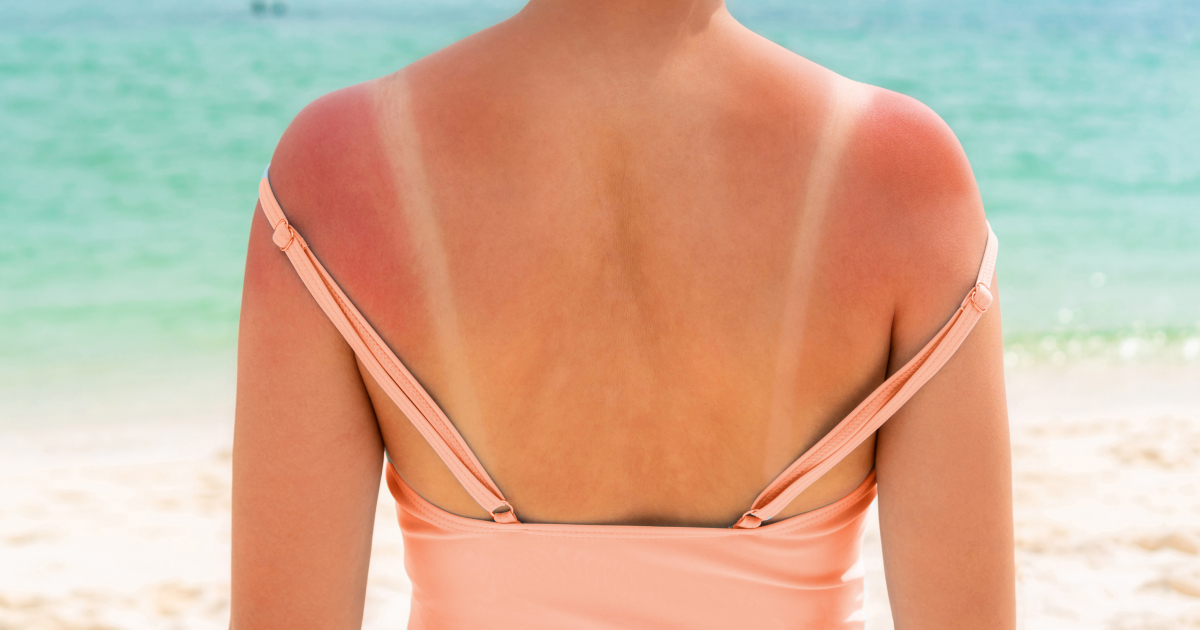
Why the constant reminders to wear sunblock? Because even one sunburn can result in long-term consequences to your health. Your risk of developing melanoma, which can be deadly, doubles with a history of 5 or more sunburns.
Before you head outdoors, keep reading to learn more about the short and long-term effects of sunburn, how to prevent it, and when to seek care.
Skin Cancer – one in every five people in the U.S. will get skin cancer during their lifetime, and over 90% result from too much sun exposure. But how does a sunburn turn into skin cancer?
The risk of getting melanoma, the deadliest type of skin cancer, can double from even one blistering sunburn in childhood or adolescence, and the more often you get sunburned, the higher your risk. Anyone can get skin cancer, but factors that put you at greater risk include: family history, age, gender, race, and your prior history of sunburns.
Other long-term effects of sunburn include premature aging, hyperpigmentation and acne flare ups.
vybe recommends seeing a dermatologist every year for a skin cancer check. Your dermatologist can also check for pre-cancerous growths, which if not removed can progress into cancer.
Sunburns can range in severity from mild to blistering. Symptoms of mild sunburn usually appear within five hours of sun exposure:
A mild sunburn usually heals on its own within a week. You can help ease your symptoms by avoiding the sun, applying cool compresses, staying hydrated, applying moisturizer, and taking cool showers.
Signs of a severe sunburn may not appear until 24 hours after sun exposure and can take weeks to heal. As you care for a severe sunburn, you may require medical help if you experience these symptoms:
If you have severe sunburn, taking an NSAID will help reduce fever and swelling. You may also submerge in cold water to cool your skin, and then continue with cold compresses.
With any sun exposure, there is a chance of sunburn. With a high UV index, sunburn can begin in as few as 10 minutes. If you are experiencing symptoms of severe sunburn, your vybe clinician can help.
No, both “getting tan” and sunburn are signs of ultraviolet (UV) radiation causing cellular damage to the skin, and can occur regardless of the amount of melanin you produce. While sunscreen helps protect against harmful UV rays, it doesn’t completely prevent damaging effects of the sun.
Certain medications, health conditions, and skincare products can also increase your sensitivity to UV rays. Ask your vybe urgent care provider for more details.
Follow these tips to help protect against the short and long-term effects of sunburn:
Make SPF your BFF. While you enjoy the summer, take care of your skin to help prevent the damage the sun can cause.
If you have symptoms of severe sunburn, walk in or schedule an appointment at any vybe location for immediate medical attention to prevent further skin damage. If your symptoms continue or worsen after urgent care, contact a dermatologist for long-term solutions.
FIND YOUR VYBE